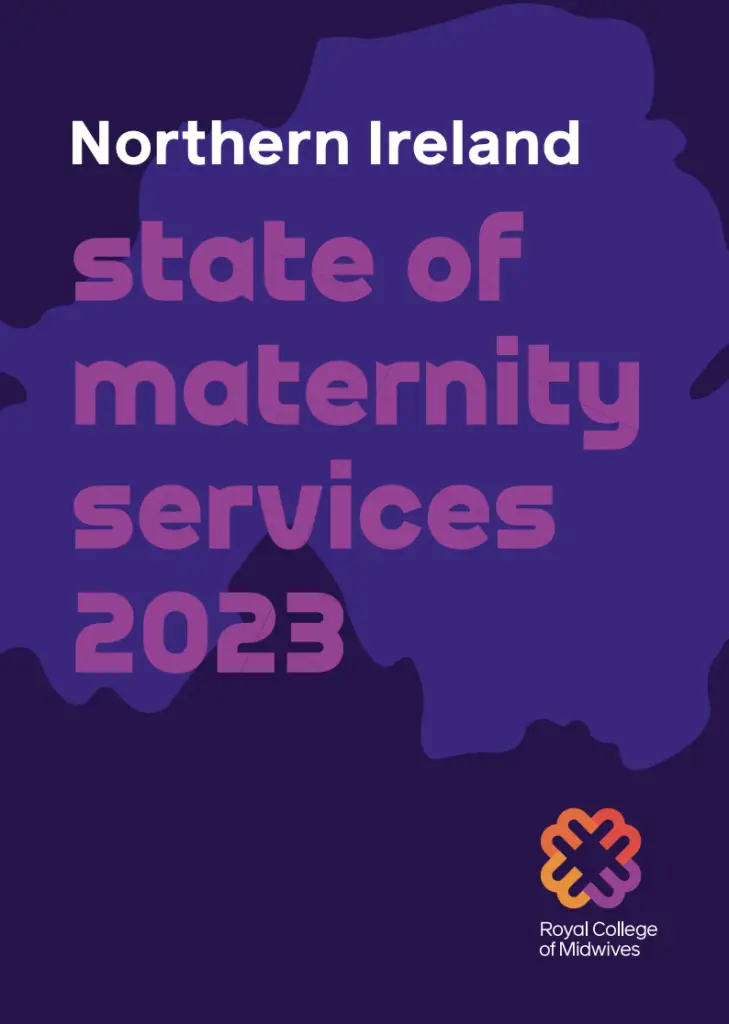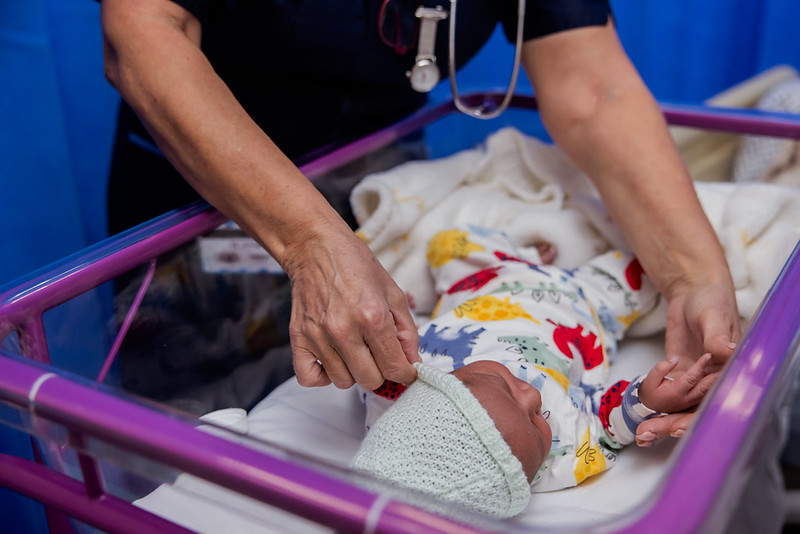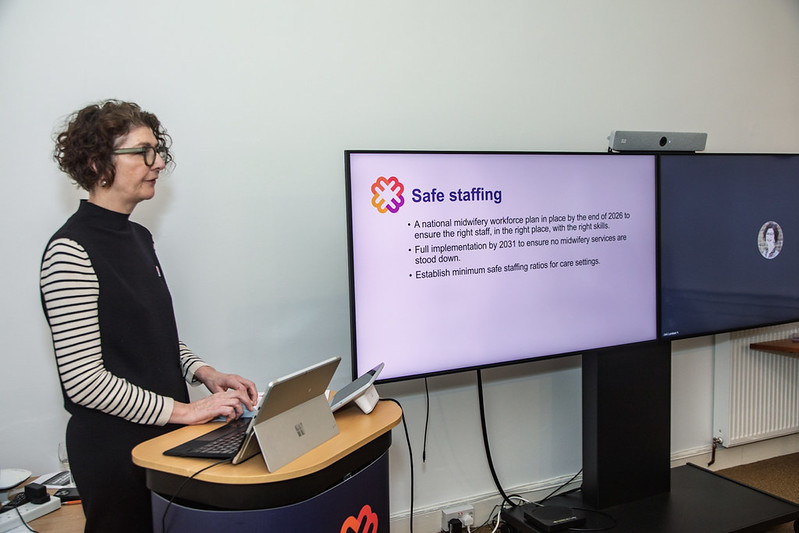on 30 May 2023 RCM Maternity Services Midwifery Midwives Northern Ireland Director For Northern Ireland Midwife Shortage Older Mothers Diabetes Safe high quality care Safety Staffing Levels State of Maternity Services Report Student midwives Women Women’s Choice Maternity Safety maternity care assistant
The need for a maternity strategy in Northern Ireland has gone beyond urgent and is now critical says the Royal College of Midwives (RCM).
The RCM’s warning comes as it publishes a report on Northern Ireland’s maternity services which is being launched at an event at Stormont today. This shows mounting challenges for maternity services as the demographics of women needing care is changing rapidly.
RCM Director for Northern Ireland, Karen Murray, said: “Services are coping because of the incredible efforts of staff, who go above and beyond on a daily basis, often to the detriment of their mental and physical health, but this is not sustainable. We are seeing far more complicated pregnancies, and this is increasing the demands on midwives and their colleagues. They want to ensure these women get the best possible support, advice and care. That is proving more and more difficult without the resources to back them up. We need more investment and more midwives to deliver the services women expect and deserve.
“The recent rise in the number of student midwives is one thing we are getting right – and one that must be sustained. Any fall in student midwife numbers will have a negative impact on the care for women and the wellbeing of staff. It is also essential that we focus on retaining the midwives that we have by ensuring that they are paid fairly and have opportunities to work in sustainable ways and to develop their career.”
There are increasing numbers of women being cared for by Northern Ireland maternity services with additional health needs. Over one in four pregnant women in Northern Ireland are now obese and less than half have a weight in the healthy range. They are also much more likely to have been diagnosed with diabetes than a decade ago, with the numbers rising from 899 with diabetes in 212/13 to 3177 in 2020/21. The age at which women become pregnant is also rising with a dramatic rise in pregnancies to women in their thirties. Despite a drop in the birthrate over recent years – a trend seen across all five health and social care trusts – all these factors and more have significantly increased and complicated the workload of midwives, and increased pressures on maternity services, says the RCM.
The RCM report outlines three steps to deliver high quality safe services for women and families: develop, publish and fund the implementation of a new maternity and neonatal strategy for Northern Ireland; sustain the number of places for new student midwives at their recent, higher level; and focus on retaining the midwives in the HSC.
Karen Murray added, “Increasingly, and quite rightly, women have higher expectations of maternity services than in generations past. The needs and health of women using maternity services is changing rapidly and we need a new maternity and neonatal strategy, which has recruitment and retention at its heart.”
ENDS
To contact the RCM Media Office call 020 7312 3456, or email media@rcm.org.uk.
Notes to Editor
- The launch was kindly sponsored by Alan Chambers MLA
- In 2012/13, 899 women resident and giving birth in Northern Ireland had diabetes. This had risen to 3,177 by 2020/21
- Between 2012/13 and 2020/21 the proportion of women with a BMI in the healthy weight range, fell from 50.1% in 2012/13 to 41.7% in 2020/21.
- There were more births to women aged 32 or over in 2021 compared to 2011.
The full RCM report ‘Northern Ireland State of Maternity Services 2023′ can be read at rcm-northern-ireland-state-of-maternity-services-report-2023.pdf.
See also:
- RCM calls for urgent start on new Northern Ireland maternity strategy
- Get behind our plans to deliver better maternity care for Northern Ireland’s women RCM urges politicians
- RCM makes the case for a new maternity strategy for Northern Ireland
The Royal College of Midwives (RCM) is the only trade union and professional association dedicated to serving midwifery and the whole midwifery team. We provide workplace advice and support, professional and clinical guidance, and information, and learning opportunities with our broad range of events, conferences, and online resources. For more information visit the RCM | A professional organisation and trade union dedicated to serving the whole midwifery team


